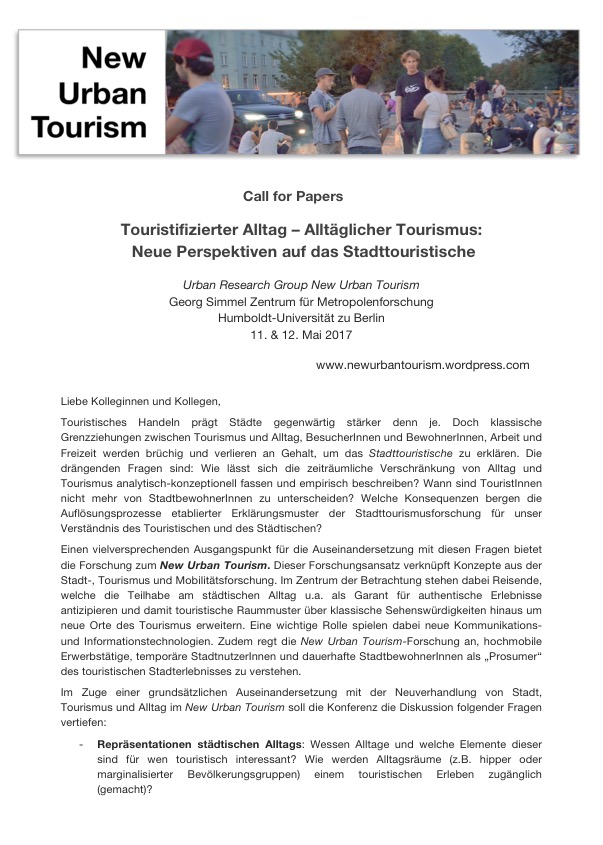The Urban Research Group New Urban Tourism is back!
As the COVID-19 pandemic restricts physical travel, we invite you to join us for our digital Short Trips, a series of online talks at our imaginary pool bar. Changing guests will present their perspectives on urban tourism phenomena and current research findings. The first talk
“Touristification, social movements and creative professionals: Findings from Athens”
will be held by
Dr. Dimitris Pettas (Marie Skłodowska-Curie Fellow, TU Berlin) on
March 15, 2021, 6–7PM.
Join us for the discussion via zoom, please register at https://bit.ly/37IbIJx

Abstract: During the last few years, Athens has experienced a substantial increase in tourist inflows, while transforming from a one-day stop destination during summer to a year-round, city-break destination. This overall shift in the city’s touristic identity was driven by a series of trends and events that increased Athens’ popularity. The presentation explores the role of the aforementioned developments in the emergence of Athens as a city-break destination, along with processes of touristification, focusing on the central district of Exarcheia, where grassroots political activity and creativity co-exist in high densities. Due to the increased touristic traffic in the area, specific, often interrelated problematic conditions emerge concerning housing, residents’ everyday life and local businesses’ activity. At the same time, political groups and precarious creative professionals are facing substantial threats due to touristification.
Cheers, your Urban Research Group New Urban Tourism


